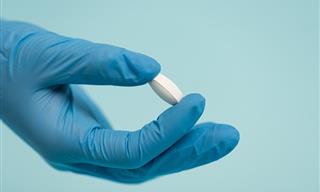Our muscles are our body’s largest storehouse of protein. Without consuming sufficient protein, our muscle mass will be affected and can begin to deteriorate. This happens when the body doesn’t get enough dietary protein and takes it from the skeletal muscles instead, ultimately resulting in muscle wasting or a decrease in muscle mass.
In the elderly, even a minor protein deficiency can lead to muscle wasting. In fact, one study in elderly men and women found that muscle loss was higher in those who consumed insufficient amounts of protein. Hence, seniors need to be extra mindful of their protein intake.
2. Skin, Hair, and Nail Problems
Our hair, skin, and nails are largely made up of proteins like elastin, collagen, and keratin. A protein deficiency can, as a consequence, lead to thinning hair, dry and flaky skin, and weak nails with deep ridges in them. This happens because your body isn’t able to make the adequate proteins required for these organs. While these issues are generally seen in severe cases you should still be aware of your protein intake to be safe.
3. Swelling
One of the most common signs of inadequate protein intake is swelling (also called edema). This kind of swelling typically happens in the abdomen, feet, hands, or legs. According to health experts, this is caused by low amounts of human serum albumin, the protein responsible for preventing excessive amounts of fluid from building up in your tissues or other body compartments. Reduced human serum albumin levels can therefore cause an excess fluid accumulation in tissues, leading to swelling in certain places, especially the lower legs.
4. Weakness and Fatigue
While weakness and fatigue can be caused by a variety of issues, research has shown that even a week of insufficient protein intake can reduce muscle strength and affect the muscles in charge of the body’s posture and movement. This may then lead to weakness and fatigue, especially in people 55 years or older.
Furthermore, as we mentioned above, a lack of protein can also make you lose muscle mass, which eventually causes you to lose strength and may slow down the metabolism. Experts also say that protein malnutrition results in moderate anemia, a condition resulting from a lack of red blood cells. Since blood cells carry oxygen throughout the body, inadequate oxygen-rich blood can make you feel weary and exhausted.
5. Higher risk of bone fractures
Not consuming enough protein can have an adverse effect on your bones as well because the macronutrient is crucial for maintaining and building bone density and strength. As a result, a dearth of it may weaken your bones and lead to an increased risk of fractures.
A study on postmenopausal women had found that a higher animal-based protein intake was linked with a lower risk of hip fractures. Another study in postmenopausal women with recent hip fractures confirmed that taking 20 grams of protein supplements per day for half a year curbed bone loss by 2.3%.
6. Unexplained hunger
This one isn’t quite surprising. Protein helps keep us fueled and plays an important part in appetite control. Along with carbs and fats, it’s one of three main sources of calories. Thus, if you find yourself feeling hungry a lot of time even though you have just eaten, it may be because you need more protein.
A study focused on observing the satiety impact of a high-protein breakfast (including 35 grams) as against a normal-protein breakfast (including 13 grams), revealed that the participants who had a high-protein breakfast felt lesser post-meal food cravings in comparison with the group consuming the normal-protein meal.
If you are regularly experiencing post-meal food cravings, the best thing you can do is add some protein-rich food like hard-boiled eggs, lentils, plain Greek yogurt, and white-meat poultry to your meals. Read our article on 14 Sources of Protein Clean from Chemicals for more ideas.
7. Staying sick for a longer time
Our bodies need protein to digest and consume nutrients that keep us healthy. A protein deficit can lead to an impaired immune system function, resulting in an increased risk of infections. In fact, eating too little protein can severely damage your body’s ability to fight off viruses, bacteria, and toxins and leave you prone to being sick for long durations.
A study in older women found that a low-protein diet for nine weeks substantially reduced their immune response. Experts also say that proteins can change the levels of good bacteria in your blood that help in fighting diseases. A dearth of it might consequently impair your body’s ability to fight infections like the common cold.
8. Mood swings
Lack of protein can also negatively impact your mood. Many of the neurotransmitters (chemicals that help relay information between cells) in our brain are made of amino acids. Now, amino acids are the building blocks of protein while these neurotransmitters are mood regulators. Lesser amounts of protein in your diet could mean that your body is being unable to produce enough neurotransmitters and that may lead to mood swings or you feeling depressed without reason.
Share this useful information with your friends and family...
 Go to BabaMail
Go to BabaMail
































